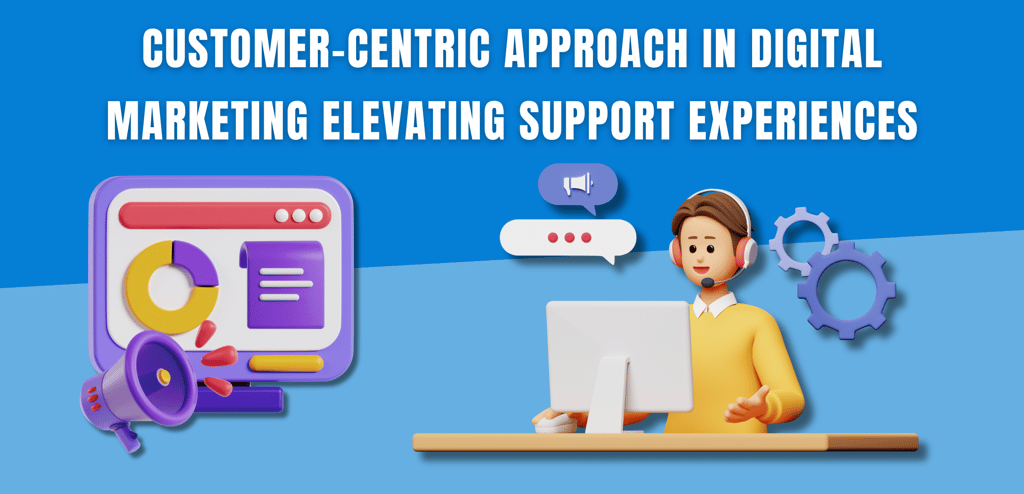
Customer-Centric Approach in Digital Marketing Elevating Support Experiences
By AZ Konnect Team
5/17/20242 min read


In the digital age, customer expectations are higher than ever, and businesses must adapt by prioritizing customer-centricity across all touchpoints. This includes not only marketing efforts but also support experiences. In this blog post, we'll explore the importance of adopting a customer-centric approach in digital marketing and how it can elevate support experiences to delight customers and foster long-term loyalty.
Understanding the Customer-Centric Approach: At its core, a customer-centric approach revolves around putting the customer's needs, preferences, and satisfaction at the forefront of every interaction. This means shifting from a transactional mindset to a relationship-focused one, where the goal is to create meaningful connections and deliver exceptional experiences at every stage of the customer journey.
Integrating Support into Marketing Efforts: In a customer-centric approach, support is seamlessly integrated into marketing efforts to provide a holistic experience for customers. This means offering readily accessible support channels, such as live chat, email, or social media, directly within marketing communications and on digital platforms. By making support readily available, businesses can address customer inquiries or concerns in real-time, enhancing the overall customer experience.
Personalizing Support Interactions: Personalization is key to delivering exceptional support experiences in a customer-centric approach. By leveraging data collected through various touchpoints, businesses can tailor support interactions to each customer's unique needs and preferences. This might involve addressing customers by name, referencing past interactions or purchases, and offering personalized solutions or recommendations to resolve their issues effectively.
Empowering Customers with Self-Service Options: Another aspect of a customer-centric approach is empowering customers to find answers and solutions on their own terms. Providing self-service options, such as comprehensive FAQs, knowledge bases, or tutorials, allows customers to resolve common issues independently, reducing the need for direct support interactions. This not only saves time for both customers and support teams but also empowers customers to feel more confident and in control of their experiences.
Listening and Responding to Feedback: Customer feedback is invaluable for improving support experiences and overall satisfaction. Adopt a proactive approach to gathering feedback through surveys, reviews, and social media monitoring, and use this feedback to identify areas for improvement and implement necessary changes. By demonstrating a commitment to listening and responding to customer feedback, businesses can show customers that their opinions matter and foster trust and loyalty.
Continuously Improving and Innovating: The digital landscape is constantly evolving, and businesses must stay ahead of the curve to meet changing customer expectations. Continuously evaluate support processes, tools, and technologies to identify opportunities for improvement and innovation. This might involve implementing AI-powered chatbots for faster response times, integrating omnichannel support solutions for seamless experiences, or leveraging data analytics to gain insights into customer behavior and preferences.
Cultivating a Customer-Centric Culture: Ultimately, a customer-centric approach is not just about implementing specific tactics but also about cultivating a company-wide culture that prioritizes the customer above all else. Encourage all employees, from marketing and support teams to executives and frontline staff, to embrace a customer-centric mindset in their day-to-day activities. By fostering a culture of empathy, accountability, and continuous improvement, businesses can truly differentiate themselves and deliver exceptional support experiences that drive customer loyalty and advocacy.
In conclusion, adopting a customer-centric approach in digital marketing is essential for elevating support experiences and fostering long-term relationships with customers. By integrating support into marketing efforts, personalizing interactions, empowering customers with self-service options, listening to feedback, continuously improving and innovating, and cultivating a customer-centric culture, businesses can create memorable experiences that delight customers and drive sustainable growth in the digital age.
Subscribe To Our Newsletter


